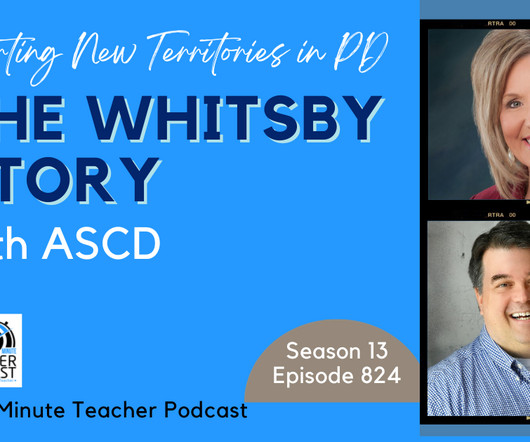Charting New Territories in PD: The Whitsby Story with ASCD
The CoolCatTeacher
DECEMBER 19, 2023
Robert has held various leadership and instructional roles in the field of education, with a focus on online and blended learning. Prior to that, they completed their Bachelor of Science degree in Secondary Education – Science at Bloomsburg University of Pennsylvania from 1990 to 1993.
















Let's personalize your content